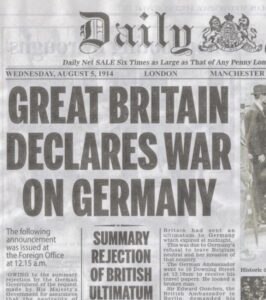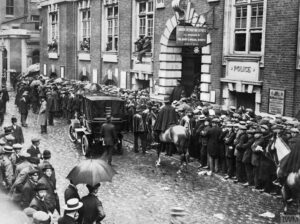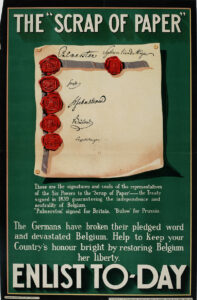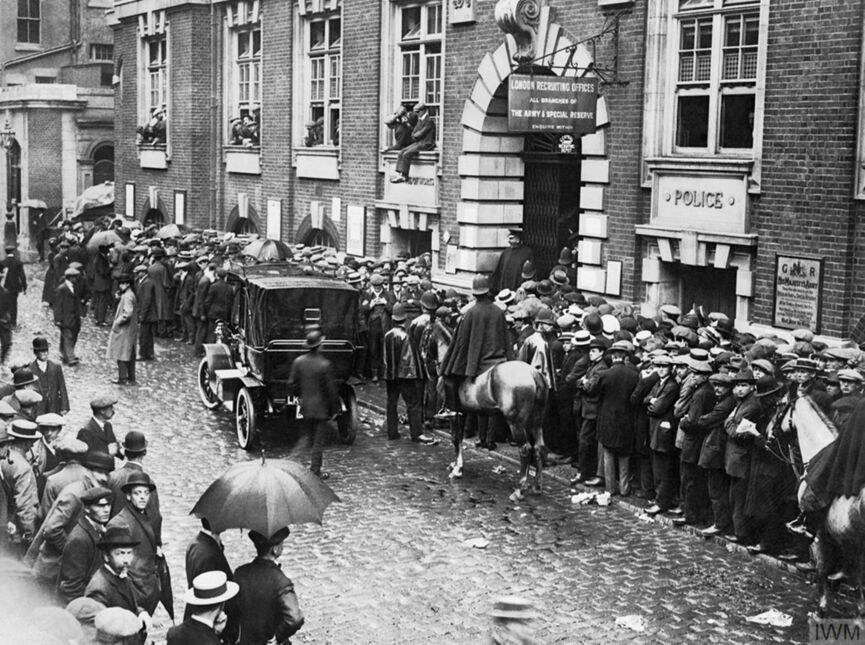Remembering the Dawn of a Global Conflict: Britain’s Entry into WWI on August 4, 1914.
As we have our WWI reenactment weekend this week, we have decided to dedicate this #ForgottenFriday to the day Britain entered the First World War on 4th August 1914.
On that very day in 1914, a significant moment in history unfolded as Britain declared war on Germany, marking its entry into what would become one of the most devastating conflicts the world has ever known—World War I. This decision, driven by a complex web of alliances, political tensions, and a commitment to international agreements, set the stage for a war that would reshape nations and lives.

The Road to War
The early 20th century was a time of burgeoning nationalistic fervour, intricate alliances, and a volatile balance of power in Europe. The immediate catalyst for the conflict was the assassination of Archduke Franz Ferdinand of Austria-Hungary on 28th June 1914. What followed was a rapid escalation as alliances were called upon, pulling nation after nation into the fray. For Britain, the tipping point came when Germany violated Belgium’s neutrality, an act that not only outraged the British public and government but also directly contravened the Treaty of London (1839), to which Britain was a signatory. We were prepared to take the risk to follow the Treaty.
A Nation at War
When the British government issued its ultimatum to Germany, demanding the withdrawal of German troops from Belgium, it was met with silence. As the ultimatum expired, Britain found itself at war. The announcement was met with a mix of patriotic fervour and solemn recognition of the gravity of the situation. Across the nation, men enlisted, believing the war would be over by Christmas. The reality, however, as we know, this was the complete opposite. Those men experienced the most horrific encounters known to man.

BRITISH RESPONSE TO THE OUTBREAK OF WAR AUGUST 1914: RECRUITING AND SCENES IN THE UNITED KINGDOM 1914 – IWM Q 42033
DAILY MIRROR COLLECTION
The Impact
The entry into WWI marked the beginning of a massive military and industrial mobilisation. Millions of men would serve on the front lines, and countless women would take on new roles in the workforce, filling the gaps left by the men who went to fight. The war effort demanded unparalleled sacrifices and led to significant social and economic changes.
On the home front, propaganda played a crucial role in maintaining morale and support for the war effort. Posters, newspapers, and speeches called upon citizens to do their part, whether by enlisting, conserving resources, or buying war bonds. The sense of duty and national unity was palpable, but so too was the fear and uncertainty as the conflict dragged on.

Remembering the Fallen
Today, we look back on 4th August, 1914, with a blend of reverence and sorrow. It marks the beginning of a conflict that would claim millions of lives and leave an indelible mark on the world. The bravery and sacrifices of those who served are commemorated in ceremonies, memorials, and through the study of history.
As we reflect on this day, it’s crucial to remember the lessons learned from the past. The hope is that by understanding the causes and consequences of such conflicts, we can work towards a future where diplomacy and cooperation prevail over the horrors of war.
Conclusion
The British entry into WWI on 4th August, 1914, was a pivotal moment that thrust the nation into a global conflict with far-reaching consequences. As we commemorate this date, we honour the courage and sacrifice of those who lived through these tumultuous times and strive to build a world where such sacrifices are never again required.


